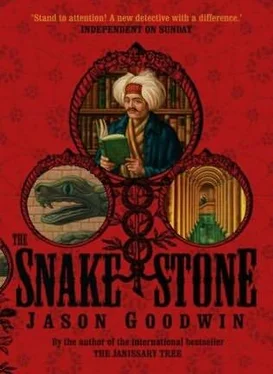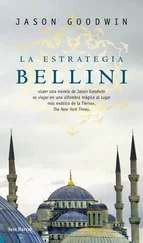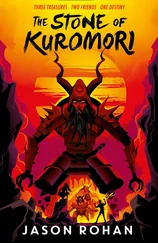Jason Goodwin - The snake stone
Здесь есть возможность читать онлайн «Jason Goodwin - The snake stone» весь текст электронной книги совершенно бесплатно (целиком полную версию без сокращений). В некоторых случаях можно слушать аудио, скачать через торрент в формате fb2 и присутствует краткое содержание. Жанр: Исторический детектив, на английском языке. Описание произведения, (предисловие) а так же отзывы посетителей доступны на портале библиотеки ЛибКат.
- Название:The snake stone
- Автор:
- Жанр:
- Год:неизвестен
- ISBN:нет данных
- Рейтинг книги:4 / 5. Голосов: 1
-
Избранное:Добавить в избранное
- Отзывы:
-
Ваша оценка:
- 80
- 1
- 2
- 3
- 4
- 5
The snake stone: краткое содержание, описание и аннотация
Предлагаем к чтению аннотацию, описание, краткое содержание или предисловие (зависит от того, что написал сам автор книги «The snake stone»). Если вы не нашли необходимую информацию о книге — напишите в комментариях, мы постараемся отыскать её.
The snake stone — читать онлайн бесплатно полную книгу (весь текст) целиком
Ниже представлен текст книги, разбитый по страницам. Система сохранения места последней прочитанной страницы, позволяет с удобством читать онлайн бесплатно книгу «The snake stone», без необходимости каждый раз заново искать на чём Вы остановились. Поставьте закладку, и сможете в любой момент перейти на страницу, на которой закончили чтение.
Интервал:
Закладка:
Yashim cocked his head. “I heard he died of fever, and bad doctors.”
Compston looked aggrieved. “Well, that of course. We shouldn’t blame the doctors. Not really. I suppose they did their best,” he added bitterly.
Palewski harrumphed quietly. “More port, Mr. Compston.”
“Dr. Millingen attends the sultan now,” Yashim pointed out.
“Yes. But there were others.”
“I’d heard-Stephanitzes, perhaps? Dr. Lefevre?’
“Lefevre?” Compston frowned and shook his head. “Stephanitzes was the only Greek among ’em. Jenkins, Bruno.” Compston had forgotten his Byronic poses and was now leaning forward, frowning, like a small boy trying to remember his lesson. “And poor Meyer, too.”
“Poor Meyer?”
“Well, unfortunate. A Swiss. Byron said he had no manners. Banned him from coming to his house. Meyer edited a sort of journal. Chronica Hellenica, I think. He and Byron had differences about the paper.”
“And what happened to them all-after Byron’s death, I mean? At the end?”
“I’m sure you know, monsieur, how Missilonghi ended. They were down to gnawing hooves and bones, and they decided to break out. Two thousand rebels succeeded in pushing through the Turkish lines, and escaping to the hills. The others-I’m afraid they lost their nerve. Turned and fled back into Missilonghi. Ibrahim saw his chance. Unleashed his army. Albanians and Egyptians. Terrible, terrible times,” Compston murmured vaguely.
“But the doctors like Millingen, they got away?”
“Mostly. Millingen was captured a year later, by your lot. Spent a while in prison, then came on out here. Stephanitzes-I don’t know. Oh, Meyer didn’t make it, of course.”
“The unpopular Swiss?”
“That’s right. Not altogether unpopular, I should say,” Compston added, with a huge wink at the port. “According to Lord Byron’s letters, Meyer seduced a girl at Missilonghi.” He struck his knee. “Come to think of it, we had a case like that in Burnham Overy a few years ago. Caused a lot of bad blood, actually. Father fixed it up, in the end. Same way Byron did, once he’d got wind of the affair-I mean the one in Missilonghi; Byron never came to Burnham Overy. Meyer wanted to bluff it out, but Byron set the Suliotes on him. Blacked his eye, knocked out two of his teeth, and pretty much dragged him up the aisle. Quite right, too-Byron saw it as a question of morale.”
“So what happened to him?” Yashim asked.
“The chap in Burnham Overy?”
“Meyer.”
“Married the girl.”
“I mean afterward,” Yashim said, with infinite patience.
“Oh, I see what you’re after. No, he didn’t get out. Must have been included in the general massacre which followed the fall of the town.” Compston frowned and sat a little straighter. “A rather inglorious moment in your history, I’d say.”
“I don’t know that war ever reflects well on anyone. Except your friend Byron, of course.”
“Byron’s a special case, monsieur.” Compston took out a big lace handkerchief and blew his nose. “S’what genius means, I suppose.”
He sat, broad and glum, staring at the polished table. His eyelids fluttered and closed; and then, very slowly, he keeled forward, resting his forehead on the table and began to snore.
Palewski and Yashim regarded him in silence.
“I was about to offer coffee. Yashim?”
They took their coffee to the window seat, having turned Compston’s head so that his nose was not pressed flat against the mahogany. Outside it was dark, the distant sound of barking dogs mingling with the slow rumble of the English boy’s snores.
“Poor Byron!” the ambassador exclaimed. “One minute the chap had a headache-who wouldn’t with all those Greeks dunning him right, left, and center-and the next, dead. Bled and physicked by a pack of quacks. He didn’t stand a chance.”
“No. Perhaps it was deliberate?”
“Deliberate? No, no. Doctors spend their professional lives killing people. It’s what they do.”
“Even so,” Yashim said, “Millingen was at Missilonghi for the Greek cause. Byron’s death led on to Greek independence. It rallied the Europeans.”
“Deep, Yashim. I like it. Deep, improbable, but worth contemplating. You’re beginning to think like a Pole.”
Yashim gave a wan smile. “You think it’s ridiculous.”
“Not altogether. A fashionable Scottish doctor who accidentally let the greatest living English poet die on him. Not a calling card in Mayfair, is it? Millingen must have come here because there wasn’t a patient in Europe who’d have him. Byron’s reputation was legendary. But Millingen feels safe out here. You Ottomans-it’s what makes you so lovable-wouldn’t know Byron from a syringe. You told me that yourself.”
Yashim nodded. “I’ve been thinking about that,” he said. He took a sip of coffee. “We wouldn’t know Dr. Meyer either, for that matter, if he suddenly showed up in Istanbul.”
“Meyer?”
“The doctor Byron couldn’t abide. The man who didn’t get away.”
Palewski half turned his head. “As Compston says, Yashim, it was a massacre.”
“A massacre. Sometimes-in the confusion-people have a chance to escape.”
Palewski nodded. “True. They lie doggo in the water, breathing through a reed. Or play dead. Tumbled into a common grave, sneaking out when the devils are gone. That sort of thing.”
Yashim shrugged. “Meyer survives. Twelve years later, he comes to Istanbul.”
“Very well.”
“He has headaches. He consults a doctor-Millingen. Dr. Millingen would remember him.”
Palewski slowly closed his eyes. He shook his head. “Why consult a doctor if you are one?”
“I don’t know. But that’s exactly what Lefevre did-he told us so.”
A look of pain slid across the ambassador’s face. He sank back against the shutter case.
“Yashim.”
“Dr. Meyer was the one with the interest in Greek archaeology. The one Byron disliked on sight.”
Palewski considered the ceiling.
“You disliked Lefevre on sight yourself,” Yashim insisted. “And then there’s a coin trick they all learned from one another. Lefevre did it. Millingen does it.”
Palewski whistled. “You think Meyer and Lefevre were the same man?”
“One or two things I still don’t understand-but yes. It makes sense.”
“You can’t fault Lord Byron’s judgment, if that’s the case. But why? Why change his name and all that?”
“I don’t know yet,” Yashim confessed. “If I did, I’d have the answer to how he died.”
“Why show himself to Millingen?” Palewski asked. “The man who could still prove who he was?”
Yashim clasped his hands together. “Look at it this way. What was Lefevre doing, in the days before he was killed?”
“Reading old books. Getting scared. What else?”
“Negotiating, that’s what Malakian thought. Lefevre had something he could sell.”
“Or buy?”
Yashim shook his head. “Not so likely. After all, he had no money left.”
Palewski took a deep breath. “But he had nothing of value on him, either, except the little book. And it’s not worth all that much.”
“He didn’t necessarily possess what he was selling. Or not yet.”
“Very well. But why break his cover and go to see Millingen?” Palewski unfolded himself from the chair and went to the door.
“Marta! Brandy!”
He stood by the door, listening. Then he came back and flopped back into his chair.
“I said you were thinking like a Pole, Yashim, but don’t overdo it. Have one of these,” he added as Marta brought the tray into the room. “Thank you, Marta.”
Marta smiled and poured two glasses of brandy. When the door closed Yashim said: “The Hetira is a society devoted to the restoration of the Greek empire: that’s the Great Idea. But restoration means healing, too. Restoring to health.”
Читать дальшеИнтервал:
Закладка:
Похожие книги на «The snake stone»
Представляем Вашему вниманию похожие книги на «The snake stone» списком для выбора. Мы отобрали схожую по названию и смыслу литературу в надежде предоставить читателям больше вариантов отыскать новые, интересные, ещё непрочитанные произведения.
Обсуждение, отзывы о книге «The snake stone» и просто собственные мнения читателей. Оставьте ваши комментарии, напишите, что Вы думаете о произведении, его смысле или главных героях. Укажите что конкретно понравилось, а что нет, и почему Вы так считаете.












